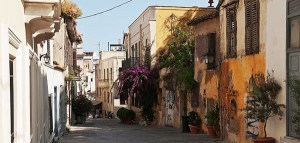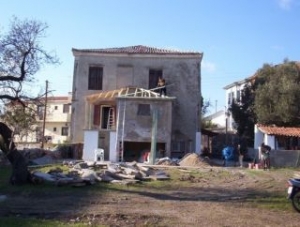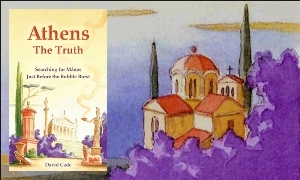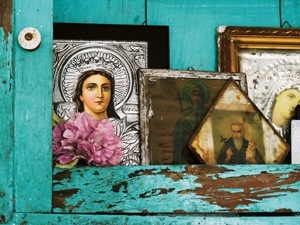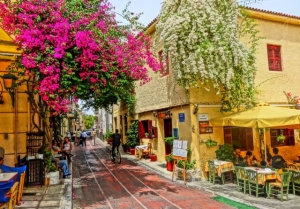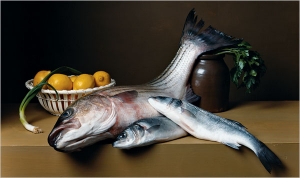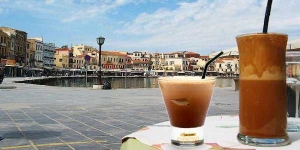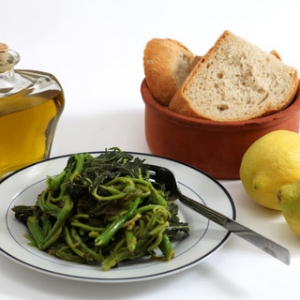LIFE & CULTURE
XpatAthens
How The Athens Suburbs Got Their Names
Zografou: The municipality of Zografou is one of the best known areas of Athens and owes its name to Ioannis Zografos, a man who used to own a large land outside the center of Athens in the early 20th century and sold it in small plots to 100 families, who then formed the Zografou community (back at the time they used to say that someone lived on the Zografou estate). Later on, one of Zografos’ sons, Sotiris, became the first mayor of the municipality.
Psyri: The gentrified neighborhood of Athens was named after an islander from the island of Psara (which was called in the Middle Ages Psyra) arrived in the area and built a church to honor St. Athanasios. The man was called by the locals Psyris (meaning Psarianos, someone from Psara) and in turn the area was renamed into “Psyri” and not “Psirri” (with a double r) as commonly mistaken today.
Kolonaki: The prestigious neighborhood of Kolonaki got its name from a small column set in the central square of the area by the people of Athens during the Ottoman rule in order to pray to God to help them survive the plagues and illnesses of the time. The small column has a diameter of 30 cm and height of 2 m.
By Stella Tsolakidou
Christmas Shopping Hours In Athens
Christmas may the 'most wonderful time of the year' however sometimes it tends to be one of the most stressful times of the year, too. There's a lot to do and usually there isn't enough time to get everything done!
To make holiday shopping easier, the shops in Athens have extended their opening hours and include 3 days of Sunday shopping. This special schedule, designed to cater to the increased demand during Christmas and New Year, will commence on Thursday, December 12, 2024, and remain in effect until the end of the year.
Details of the 2024 Festive Schedule
From December 12 onwards, retail stores will operate with extended hours to ensure shoppers have plenty of time to prepare for the holidays. Here’s the complete schedule:
- Thursday, December 12: 09:00 – 21:00
- Friday, December 13: 09:00 – 21:00
- Saturday, December 14: 09:00 – 21:00
- Sunday, December 15: 11:00 – 18:00
- Monday, December 16 – Friday, December 20: 09:00 – 21:00
- Saturday, December 21: 09:00 – 21:00
- Sunday, December 22: 11:00 – 18:00
- Monday, December 23: 09:00 – 21:00
- Tuesday, December 24 (Christmas Eve): 09:00 – 21:00
- Friday, December 27 – Saturday, December 28: 09:00 – 21:00
- Sunday, December 29: 11:00 – 18:00
- Monday, December 30: 09:00 – 21:00
- Tuesday, December 31 (New Year’s Eve): 09:00 – 18:00
Holiday Closures:
Stores will remain closed on all of the following days:
Christmas Day - Wednesday, December 25
Boxing Day - Thursday, December 26
New Year Day - January 1
Also on - January 2nd!
Sunday Shopping:
Stores will be open on the following 3 Sundays during the festive season:
- December 15
- December 22
- December 29
A House In Greece
When my husband and I decided to take up a retirement project to renovate a large old house in Greece we were filled with excitement. That was ten years ago, and since then we have been travelling to our old house on the island of Lemnos in the Aegean for six months every year. But it has not been all blue skies and tavernas.
It was a project that would take its toll in various ways, emotionally, physically and financially over the years. We’ve watched the exchange rates, carefully noting when they went up or down. And then, when economic uncertainties hit Greece and the worldwide financial crash hit, we wondered how long we could afford to keep flying to Greece and paying for the renovations. There is no doubt that Ogden Nash got it right when he wrote that ‘It takes a heap o’ livin’ in a house t’ make it home. It takes a heap o’ payin’ too’.
While the dream of a house on an Aegean island, with sunshine, warm seas and rural peace, is something many busy, driven, city folk long for, it’s not easily achieved. Land in Greece always belongs to someone. Even if you spot a ruined house on an empty block you’ll very soon find it belongs to absent landlords who are planning to return sometime soon.
It was Takis’ perseverance over a very long period that enabled us to buy the house. We spent two years exploring our options and then six more years (while renovating) before we managed to fully own his great-grandfather’s house. And then it took even longer to renovate. However, all this time the house has continued to be a magnet for us and has made the effort worthwhile.
It’s been not only a big adventure, it’s been a love story - one with a house at its centre. On Lemnos we’ve lived and laughed, cried and sweated a most marvellous romantic dream-house adventure. Have we allowed the house to become our master? This wouldn’t be surprising, for as Emerson says, ‘A man builds a fine house; and now he has a master, and a task for life; he is to furnish, watch, show it, and keep it in repair, the rest of his days’. And dealing with the needs of our house we’ve found, with so many others, this kind of old house renovation project is addictive.
However, it’s not a simple thing to uproot oneself each year and take on a project such as this on the other side of the world. Travel does not get easier, mice still find holes to enter an old house, and in addition we’ve found that the house is big enough for many guests, sometimes too many! But, when I grumble about these difficulties, my friends are quick to remind me about the romance, ‘You’re on a Greek island, for God’s sake!’ they’ll say, throwing up their hands in frustration. ‘What have you got to complain about?’
I think what we’ve most enjoyed has been the fact that we have been thrown back onto our own resources. There are only a few shops nearby and it’s hard to get what you want when you want it. This is a challenge Takis enjoys, for not being able to go to a large Australian tradesman’s centre, he has to find ways of fixing things himself. As for me, I like working at a slower, more organic pace. One has time to notice the scent of lemon and nutmeg when baking a homemade cake, and to become more aware of garden scents when making bags of lavender seeds.
Of course, no one can have missed the fact that this decade has been a tumultuous one for Greece, with enormous immigration and fiscal problems. Has the economic drama affected us? Of course it has. We’ve always been aware there were problems with the way the Greek economy was run. But like many Greeks, up until the crisis hit the newsstands in 2008 we’d thought, ‘It’s just the way things are in Greece’. Now we’ve had to face the fact that, as sojourners with a property in Greece, everything we possessed in the country has lost at least half its value.
There’s a saying in Lemnos that one cries twice when coming to the island. This saying may have originated from the time when the island was a designated place of exile, and folk would cry when they landed on the island, going there reluctantly, but often they would cry again when they left, as by then they’d fallen in love with the island and its people. It’s a saying I’ve also adopted, for there have many been times when I’ve come to the island grudgingly, and many times when on leaving I’ve walked around my Greek garden very unwilling to depart.
But, after each questioning period, we’ll always decide that we’ll keep coming - at least for a few more years. For while riots and street marches occur in the capital cities, on the whole these troubles have not greatly affected our island. Here life appears to continue much as it did when we arrived. The town still doesn’t have municipal sewerage, the bells still wake us at seven on Sunday mornings, and while a few shops have closed on the Agora, others have opened.
The time will eventually come when we have to leave permanently and there will be so many things we’ll dearly miss, especially those sounds that are completely lost in a big city: the music of cockerels calling early each morning, the chatter of young children walking home from school, and even those street sellers who blare out descriptions of their wares as they drive past each day in summer.
By Dr Julia Catton
Athens - The Truth, By David Cade
Visitors to Greece have long been discouraged from spending more than just a day or two in the nation’s capital, but a new book by a New Zealand writer shows that Athens offers an extraordinary range of exceptional experiences. ‘Tourists are advised to see the Acropolis and a couple of museums but then to rush for a ferry and flee to the Greek islands!’ said author David Cade. ‘So they’ve no idea what they’re missing out on.’
Obsessed for decades by Greece’s unique music, Cade has plunged into Athens like a spring set free. The result, ‘Athens – The Truth’, is a 400-page revelation of aspects of the city unknown not only to tourists but even to many Greeks.
Graham Beattie, publishing guru and widely experienced judge of the Commonwealth Writers Prize, said: ‘I was immediately arrested by the 20-page introduction wherein he explains his fascination with all things Greek.’ Amazon readers have said that the book is ‘absolutely addictive’, ‘charming, critical, and thought-provoking’, and that it ‘makes the reader yearn for Athens’.
‘Athens – The Truth’ is a travel book that often reads more like a novel. As the author unearths the truths of the city, tension develops and the account moves towards a climax. At many points the writer’s love for Greece is obvious, but at other times his criticisms are frank. Whereas other authors appear to have been wary of treading on Greek toes, Cade tells all.
Here’s part of Cade’s description of a young Greek dancing in an Athens nightclub:
‘No longer dispirited, he rises, lifts a thigh, slaps it too, as if to show determination, and then, gazing upwards, his arms raised, he begins to glide, like an eagle dignified and free upon the winds, maintaining balance while invincibly swooping and swirling above all the challenges of life.’
‘Athens – The Truth’ has been written for anyone who has yet to encounter the true Greece. The author explained: ‘I wrote it not only to help tourists, students, or business people get the most out of Athens, but so that people at home, perhaps with no intention at all of ever actually visiting, can also encounter all those locations, people, and facts which even the most adventurous seem to miss.’
‘Athens - The Truth’ can be ordered online or from bookstores worldwide by requesting ISBN 9780955209031.
An e-book edition is available from Amazon for Kindles, iPads, iPhones, smartphones, and PCs. A second e-book edition has been made available for Nooks, Kobos, Apples, Sonys, and other devices.
Or you can get it from Public here: http://www.public.gr/product/books/english/diafora/athens-the-truth/prod5111007pp/ or from the Book Depository here:
http://www.bookdepository.co.uk/Athens-Truth-David-Cade/9780955209031
Athens - The Truth
Searching for Manos, Just Before the Bubble Burst
by David Cade
406 pages
Paperback Edition: ISBN 9780955209031
Kindle Edition: ISBN 9780955209048
Smashwords Edition: ISBN 9780955209055
Published by Tales of Orpheus
ABOUT THE AUTHOR
David Cade is a writer and actor based in the Shropshire Hills, England. He has worked in classical record production, schools, universities, and theatre. He studied Drama, Theatre Arts, and Music at the University of Birmingham and has an MA in Linguistics from the University of London. Besides the United Kingdom, he has lived in New Zealand, Fiji, Australia, and the Middle East. The music of Greece is his passion.
RELATED INFORMATION
Author’s website: http://www.davidcade.net
Twitter: https://twitter.com/AthensTheTruth
Facebook: https://www.facebook.com/AthensTheTruth
New Book: My Greek Island Home
In My Greek Island Home Claire Lloyd shares the story of how illness brought to an end her fast-paced London life as a very successful magazine art director, film maker, photographer and property developer, before finding renewed purpose in life when fell in love with the Greek island of Lesvos and the people who live there, and made it both her home and her passion.
Featuring evocative images of the beautiful island, the home which she and her partner have lovingly restored, and the many friends - and animals - who have welcomed them into their lives, My Greek Island Home is a celebration of a way of life that Claire and Matthew have embraced with open arms. They have now bought and restored a second home, Ken's Spiti, also featured in the book, which they offer for personally-tailored holidays to people wishing to experience and be part of 'the real Greece'.
My Greek Island Home by Claire Lloyd will be published by Clearview Books on 28th April.
Athens Nominated For ‘European Best Destination 2015′
Athens, Greece, has officially been nominated to run for the title of “European Best Destination 2015″. The competition has been launched by the European Best Destinations (EBD), a European organization based in Brussels and developed to promote tourism in Europe.
20 European cities will compete for this trophy between January 20 and February 10: Amsterdam, Athens, Barcelona, Berlin, Bordeaux, Brussels, Istanbul, Innsbruck, Lisbon, Ljubljana, London, Madrid, Milan, Paris, Reykjavik, Riga, Rome, Valetta, Vienna, Zagreb.
The winner will be the city with the most online votes!
One of the 20 destinations will be awarded the title of “European Best Destination 2015″. The next nine destinations with the highest number of votes will be announced through EBD’s communications, website and social networks as being one the best European destinations to visit in 2015.
 The 2015 best European Destination will be authorized to use the title and affix the “European Best Destination” logo on all its communications, adverts, website and photos; it will also have the right to authorize its own public and private partners to use the logo.
The 2015 best European Destination will be authorized to use the title and affix the “European Best Destination” logo on all its communications, adverts, website and photos; it will also have the right to authorize its own public and private partners to use the logo.
The destinations in the Top 10 can also use the logo by indicating that they have been chosen as one of the ten best destinations to visit in Europe. Their news, photos and videos will be shared by the European Best Destination organization’s website and major social networks throughout the year.
We Suggest A Mediterranean Approach To Sea Bass
“Maybe the otolith?” another scientist suggested.
“Ah,” Panopoulos said, “the otolith.”
He worked a knife into the fish’s head and removed the pearly ear bone. Then, using his glass as a primitive magnifying instrument, he counted the otolith’s layers, which accrue like rings in a tree. “I see four,” Panopoulos said, “and they are uneven. This fish is four years old and wild.”
That the fish before us was indeed wild is a rarity in modern Greece. Never common, wild European sea bass are today one of the more overfished creatures in the Mediterranean. So rare that when you want to say you “hit the jackpot” in Greek, you say you “epyase lavraki” — you caught a sea bass. But as is increasingly the case with prized sea creatures, the end of a fish in the sea does not mean its disappearance from the plate. In fact the diminishing of a wild population is often the trigger that starts research on a new species’ domestication.
Sea-bass farming has been a long time in the works. It was piloted in France and Israel in the 1960s, and it took years to decode the biochemistry behind reproduction and diet. A final element — the warm, protected inlets of coastal Greece, turned it into a commodity.
In Greece it began, as it should, with a man at sea. In 1982, Thanasis Frentzos set sail from Kefalonia, an island some archaeologists believe was Odysseus’ Ithaca. Frentzos bears a certain resemblance to Homer’s protagonist, and so it follows that when he traveled to Sicily to purchase 100,000 inch-long sea-bass juveniles, his return trip was interrupted by a fierce gale known as the donkey mistral, and 90,000 bass perished in the storm. He installed the surviving bass in a pen and grew them to maturity. From this first farm (now called Kefalonia Fisheries), Greece came to dominate world sea-bass production, and the Selonda company has emerged as an international leader, with exports to the United States growing to more than a million pounds in 2004 from 10,000 pounds in 2000.
American appreciation of foreign bass has risen in inverse proportion to the decline of our own domestic striped bass. Similar in shape to European sea bass, American striped bass were recently found through DNA analysis to be so closely related as to share a common genus (Morone). With their meaty white flesh, “stripers” were a favorite from the Carolinas to Maine all the way back to Colonial days. Fishing pressure on stripers mounted progressively until the mid-’70s, when the catch plunged. By the early ’80s, just as Thanasis Frentzos was sailing for Sicily, conservationists were suggesting stripers for the Endangered Species List.
But while Europeans generally turn to the farm when fish go missing, Americans tend to look to the wild. In a major conservation act, a consortium of states halted striped-bass fishing in the ’80s, and a program was introduced to rebuild the breeding stock in the Chesapeake Bay. One scientist the government engaged was Yonathan Zohar, an Israeli-born biologist at the University of Maryland at Baltimore who helped decode European sea-bass reproduction. Zohar, who refers to himself as an “OB-GYN for fish,” got wild striped bass to spawn in captivity in a predictable manner. Supplementation combined with fishing moratoriums yielded results. Today striper populations are listed as “fully rebuilt,” and the fish has once again appeared on seafood menus — alongside branzino.
To read more, please visit nytimes.com
By Paul Greenberg
Summer Coffee in Greece: Frappe Vs. Freddo Variations
The war of different coffee variations has begun. The traditional fans of frappe will not give up on the national cold coffee beverage for any other Italian-style coffee type, no matter what. The strong flavor and texture of frappe is unique and it symbolizes the summer, light spirit, good company and easy-going life. Dimitris Vakondios invented it by chance in 1957 during the International Thessaloniki Fair and ever since the frappe is typical of Greek contemporary culture. Add some milk and sugar to two or three tablespoons of Nescafe, stir very well in a shaker, pour some water and lots of ice cubes and there you go, your summer frappe is ready.
There are of course other alternatives to try. Cappuccino freddo is especially favored by Greeks. The Venetian monks version of cappuccino was established in the 17th century when they added milk and honey to Greek coffee. A milk foam called “afrogala” in Greek, lots of ice and some syrup depending on how sweet you like your coffee, create the biggest rival of frappe during the summer.
To read more, please visit greekreporter.com
By Stella Tsolakidou
Kalamaria Yemista: Stuffed Squid
In Greek: καλαμάρια γεμιστά, pronounced kah-lah-MAH-reeyah yeh-mee-STAH. Whatever your preference - large or small, frozen or fresh - this recipe works with all squid.
Ingredients:
| 1 kilo of cleaned squid 1/2 cup of olive oil 1/2 cup of dry wine (white or red) 3/4 cup of rice (preferably long grain) 1/2 tablespoon of tomato paste 1/4 bunch of fresh parsley, chopped |
1 teaspoon of salt 1/2 teaspoon of pepper 2 1/4 cups of water 2-3 cloves of garlic, minced 1 medium onion, finely chopped toothpicks |
Preparation:
Chop up the squid tentacles into small pieces.
Stir the tomato paste into the wine until smooth.
Preheat oven to 170C.
In a frying pan, sauté the onion, garlic, and 1/2 the chopped tentacles in the olive oil over medium-high heat. When the onion has softened and the mixture is steaming, stir in the wine and tomato paste mixture. Stir in parsley and cook until the mixture thickens slightly. Stir in 1/2 the water and bring to a boil. Stir in rice, turn off the heat, and wait for the rice to expand, about 15 minutes.
Using a spoon (or small measuring spoon for small squid), fill the squid tubes with the stuffing, to 2 cm from the top. Thread the top with one or more toothpicks to close and place in a baking pan. Add remaining stuffing, chopped tentacles, and remaining water.
Bake at 170C for one hour and 10 minutes.
Remove toothpicks before serving.
Yield: serves 6
By Nancy Gaifyllia
Horta, Greens…One Of The Most Popular Dishes
Horta, greens…one of the most popular dishes in Greece. There is hardly a meal at home or in a taverna that does not include at least one type of these wild greens. There are many types of horta and the Greeks attribute great values to them, especially on the island of Crete. Those in the know (I am not one of them) can tell them apart, know what they are good for, and which ones have no value or are even inedible.
Some are good for the liver, or kidneys, or cleanse the blood or all three and of course all are good for your digestive system. What fascinates me, living in the country as I do, is that the locals pick them from their own fields after the heavy rains in October-November. They do not grow them - they are collected wild. They always proudly tell you they are wild, even in the tavernas. “They come from the woods, I picked them myself this morning”.
By Greg Birbil
My wife who is of Epirote descent, remembers picking horta with her grandmother from empty lots in Massachusetts - they picked dandelions. I grew up in Brooklyn, not many empty lots and no horta. At least we never picked any.
Let me return to the “horta hunters”. A common sight in the countryside of Greece is a parked car, just off the road - Mercedes, BMW, or some other upscale car. There is a group of well-dressed older people, walking through the fields bent over scouring the ground with a knife in hand and a plastic bag in the other. Unless you realize what they are up to, it is a strange sight. Nevertheless these “horta hunters”, usually city folk, are having a great day out searching for their delicious greens. Remember, these are not poor people adding to their meager foods, but well to do people making the effort to have the delicious, beneficial greens that they grew up with.
If you are driving around the country side and see these “hunters”, you might want to join them, but make sure the field you pick horta from has not been recently used by sheep and goats, it might affect the taste.
To read more, please visit gourmed.gr

